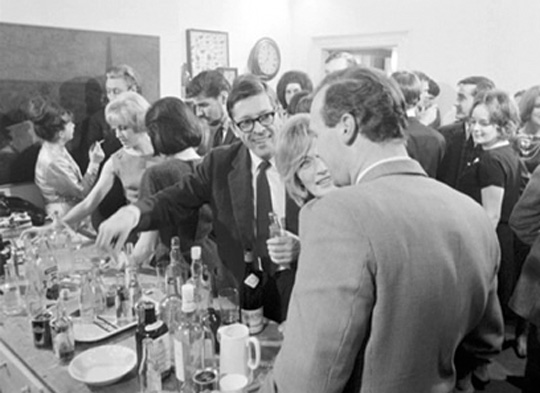GOOD TIMES, WONDERFUL TIMES (1966) - ♦♦♦♦
 Directed by - Lionel Rogosin
Directed by - Lionel Rogosin
"Lionel Rogosin stands as one of the most important figures in American experimental filmmaking, not only as a filmmaker but also as an exhibitor, having purchased the Bleecker Street Cinema in New York City in 1960, which quickly became one of the most important art house cinemas in the States and served a purpose as somewhat of a film university for many film buffs that would become acclaimed filmmakers.
As the helmer of documentaries, Rogosin's interests were prominent in the political field, and particularly in the sixties he was fuelled with enough unembellished rage to produce some truly powerful points that aimed to challenge and sometimes assault viewers in illustrating his points, ethics and views.
Good Times, Wonderful Times perhaps ranks as one of his most famous works - thought not for this reason necessarily his best. Yet, it is a definitive work in his vast filmmography because it blatantly illustrates his bite and uses of satire as well as brash and effective editing that in this work take shape in the juxtaposition of two very different situations. One, in fact, is a British upper class party full of small talk and futile conversations - the other depicts crude and vilent scenes of war, sometimes hard to look at.
Indeed, the main inspiration for the film was the Vietnam War, which started in 1964 was in full swing by the time Good Times, Wonderful Times was produced. One can admire the powerful use of archive footage and praise its effectiveness - in fact Rogosin showed this film in numerous campuses across the United States and claims have it considered as a prime influence for many young men in resisting the war. In retrospect, the simplicity of the structure of this film doesn't make it the brightest piece of anti-war filmmaking, yet at the same time it represents the part experimental filmmaking played in the anti-Vietnam war struggle, and arguably for the first time wave of artists were not commissioned by political views but personal subjective passions in spurring on movements to oppose the men in suits sending millions of young men to fight a war they had little to do with."
Documentary, USA
